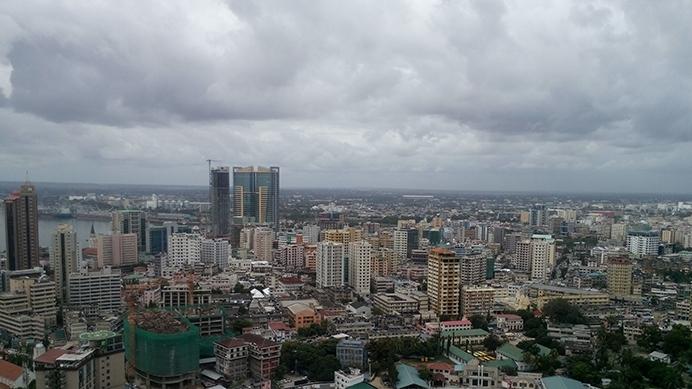By Laura Townsend
I ran my index finger over a dent in the large oak table, wishing I could shrink myself small enough to curl up inside of it. My boyfriend, Joe, sat beside me, poking small holes into his baked potato with his fork. Worry was smeared all over our mutual friend’s face. He repeated, for what must have been the 10th time, that he would never dare to travel to Africa. Of course, he would never travel anywhere outside of the United States, “with one exception,” he always noted; “I would travel to Canada for the ice fishing.”
This was the last dinner with friends before we would trade the cornfields of Iowa for the sunflower fields in Tanzania for three weeks. Why were we talking about Canada?
The only image our friend had of Africa was that which was portrayed on the news: Ebola, HIV, war, poverty, and orphans. Oh, and also lions and giraffes, of course. The mainstream media’s portrayal of Africa is much like its portrayal of anything else: greatly exaggerated, harmful, and biased. Obliterating the “other” with the power of language and a few photographs to fit a nationalistic agenda.
I explained to him that the varying landscapes, from urban city to grassland to mountain and desert, the exotic wildlife, and the thousands of cultures, traditions and languages, made Africa one of the richest, most fulfilling places to visit.
There are nearly 130 languages spoken in Tanzania alone. In all of Africa, there are between 1,500 and 2,000. How could a single bias be formed about a continent so hugely diverse? There is simply no way to box the African continent to fit one stereotype or image. One cannot claim a single reality to be true to all of Africa anymore than one can contend that one reality encompasses all of North America.
We chose Tanzania because Joe had spent the last four semesters studying Swahili. We were even able to visit his professor, Blandina Giblin, for a few days in Dar es Salaam, where we sat for hours each night, eating fresh chicken and vegetables, drinking beer, and chatting in both Swahili and English with her family and friends.
Our Swahili improved, and we ignited conversations with everyone we saw, whether a fellow passenger on the dala dalas (public buses) or a kind stranger at a nightclub.
Through these conversations we met ambitious college students, aspiring musicians, and eager young children who held our hands and practiced their English with us.
Tanzania has its problems, yes. A corrupt president and poverty keep the country from thriving at its fullest. Still, the stereotypical images of crying orphans and outbreaks of disease were nowhere to be found. Instead, we found blissful people getting through life with smiles on their faces and determination in their hearts.
It is all too easy to stigmatize what we perceive as “other.” In this day and age, when xenophobia is rampant and the president of our nation encourages fear and hatred, it is more important than ever to rid ourselves of the notion that any people, any culture, any country or continent, lives up to the stereotypes portrayed by the media. Go to these places, meet these people that you are continually told to fear, meet them face-to-face, and you will find new friends to cherish and love.
Get to know Africa, and let yourself be swept away by its remarkable people. By its rich, diverse landscapes. By its art. By its wildlife. By its thousands of languages. Dare to visit Africa.









